
Kurds or Kurdish people are an Iranian ethnic group native to the mountainous region of Kurdistan in Western Asia, which spans southeastern Turkey, northwestern Iran, northern Iraq, and northern Syria. There are exclaves of Kurds in Central Anatolia, Khorasan, and the Caucasus, as well as significant Kurdish diaspora communities in the cities of western Turkey and Western Europe. The Kurdish population is estimated to be between 30 and 45 million.

Kurdish is a language or a group of languages spoken by Kurds in the geo-cultural region of Kurdistan and the Kurdish diaspora. Kurdish languages constitutes a dialect continuum, many of which are not mutually intelligible, belonging to Western Iranian languages in the Indo-European language family. The main three dialects or languages of Kurdish are Northern Kurdish, Central Kurdish, and Southern Kurdish.

The Patriotic Union of Kurdistan is a political party active in Kurdistan Region and the disputed territories in Iraq. The PUK describes its goals as self-determination, human rights, democracy and peace for the Kurdish people of Kurdistan and Iraq. The PUK is currently under the leadership of Bafel Talabani. The PUK was founded in 1975 by Jalal Talabani, Nawshirwan Mustafa, Fuad Masum, Adel Murad, Ali Askari and Abdul Razaq Feyli. All presidents of Iraq under the 2005 constitution have been from this party.

Iran's ethnic diversity means that the languages of Iran come from a number of linguistic origins, although the primary language spoken and used is Persian. The Constitution of the Islamic Republic of Iran asserts that the Persian language alone must be used for schooling and for all official government communications. The constitution also recognizes Arabic as the language of Islam, and assigns it formal status as the language of religion. Although multilingualism is not encouraged, the use of minority languages is permitted in the course of teaching minority-language literature. Different publications have reported different statistics for the languages of Iran; however, the top three languages spoken are consistently reported as Persian, Azeri and Kurdish.

Sorani Kurdish or Central Kurdish, also called Sorani (سۆرانی/Soranî), is a Kurdish dialect or a language that is spoken in Iraq, mainly in Iraqi Kurdistan, as well as the provinces of Kurdistan, Kermanshah, and West Azerbaijan in western Iran. Sorani is one of the two official languages of Iraq, along with Arabic, and is in administrative documents simply referred to as "Kurdish".

The Kurds are an Iranian ethnic group in the Middle East. They have historically inhabited the mountainous areas to the south of Lake Van and Lake Urmia, a geographical area collectively referred to as Kurdistan. Most Kurds speak Northern Kurdish Kurmanji Kurdish (Kurmanji) and Central Kurdish (Sorani).
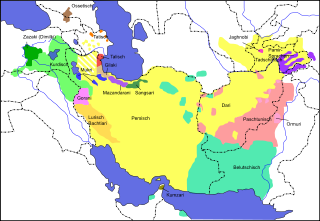
Zaza or Zazaki is a Northwestern Iranian language spoken primarily in eastern Turkey by the Zazas, who are commonly considered as Kurds, and in many cases identify as such. The language is a part of the Zaza–Gorani language group of the northwestern group of the Iranian branch. The glossonym Zaza originated as a pejorative and many Zazas call their language Dimlî.
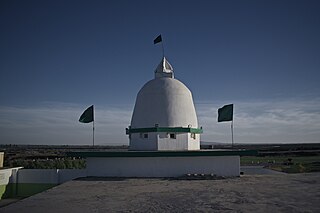
Yarsanism, Ahl-e Haqq or Kaka'i, is an inherited, syncretic religion founded by Sultan Sahak in the late 14th century in western Iran. The total number of followers of Yarsanism is estimated to be over half a million to one million in Iran. The numbers in Iraq are unknown. Followers are mostly Kurds from the Guran, Sanjâbi, Kalhor, Zangana and Jalalvand tribes. Turkic-speaking Yarsan enclaves also exist in Iran.
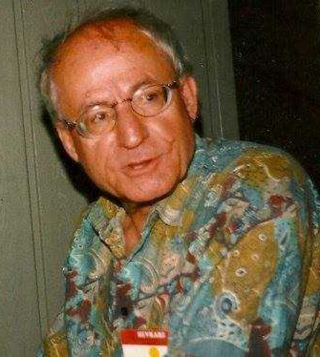
Jamal Nebez was a Kurdish linguist, mathematician, politician, author, translator and writer. He studied Islamic law, philosophy, theology, physics and mathematics at the University of Baghdad in the 1950s. In 1956, he prepared a stenciled script on algebra and in 1960, succeeded in publishing the first physics book in Kurdish, including a rich glossary of Kurdish terms pertaining to physics and mathematics. He translated several literary works, including works of Nikolai Gogol and William Shakespeare into Kurdish. He also wrote and published several books on a variety of topics. Most of the books are mainly about topics related to Kurds.
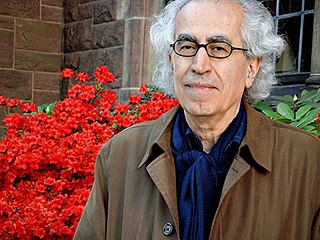
Amir Hassanpour was an Iranian scholar and researcher. He was born in Mahabad, in north-western Iran. He received his B.A. degree in English language in 1964 from the University of Tehran. He taught in the secondary schools of Mahabad in the short period of 1965–1966.

Tawfeq Mahmoud Hamza or Piramerd was a Kurdish poet, writer, novelist and journalist. He was born in the Goija neighborhood of Sulaymaniyah, Kurdistan Region. In 1926, he became the editor of the Kurdish newspaper Jîyan. He also established a private Kurdish school in Kurdistan, called Pertûkxaney Zanistî.

Kurdish literature is literature written in the Kurdish languages. Literary Kurdish works have been written in each of the four main languages: Zaza, Gorani, Kurmanji and Sorani. Ali Hariri (1009–1079) is one of the first well-known poets who wrote in Kurdish. He was from the Hakkari region.
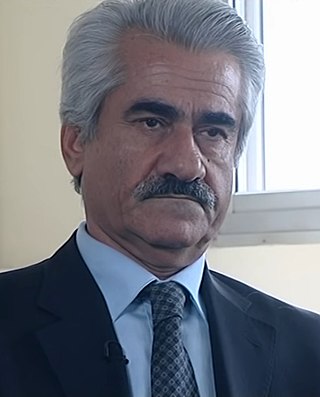
Mustafa Hijri is an Iranian-Kurdish politician who is the current leader of the Democratic Party of Iranian Kurdistan (KDPI).

University of Kurdistan is the largest university in Iranian Kurdistan Province, located in south of Sanandaj. The University of Kurdistan was ranked as the eighth top university in Iran in academic year 2007-2008 and was ranked as the first top developing university in Iran in academic year 2006–2007.
Ahmad Ghazi was a Kurdish writer and translator. He was born in 1936 in Mahabad. He received his Bachelor of Arts degree in English in Tehran Higher Institute of Languages in 1958. He played an active role in Iranian Kurdistan struggles for political sovereignty in the 1970s, because of which he was imprisoned under Shah's rule for four years. After the Iranian Revolution of 1979, he managed himself to write and translate literary and historical works both in Kurdish and Persian. He was the editor in Chief of Sirwe, a then popular cultural and literary magazine in Kurdish, from 1986 to 2006. He was also a selected member of the Kurdish Language Academy in Iran.

Ahmad Moftizadeh was an influential political and religious thinker among the Sunni Kurdish minority in Iranian Kurdistan. He is best known for his leading role in negotiating democratic freedoms for the Kurdish people in Iran during the country's Islamic Revolution. Moftizadeh led one of three major Kurdish factions during the Islamic Revolution that were demanding increased rights for Kurds in the new government. His negotiations ultimately failed and the new revolutionary authorities of the Islamic Republic of Iran ordered the arrest of Moftizadeh and several of his followers. Moftizadeh died shortly after his release from prison on 9 February 1993 due to severe torture and mistreatment by Iranian prison authorities.

Feylis, also known as Feyli Kurds, is a Kurdish tribe mainly from Baghdad and the borderlands between Iraq and Iran.They speak Feyli which is classified as a sub-dialect of Southern Kurdish, but is commonly mistaken as being identical with the separate Feyli dialect of Northern Luri. Linguist Ismaïl Kamandâr Fattah argues that the Kurdish Feyli dialect and other Southern Kurdish sub-dialects are 'interrelated and largely mutually intelligible.'
Iranian Kurdistan or Eastern Kurdistan is an unofficial name for the parts of northwestern Iran with either a majority or sizable population of Kurds. Geographically, it includes the West Azerbaijan Province, Kurdistan Province, Kermanshah Province, Ilam Province and parts of Hamadan Province and Lorestan Province.
Abdullah Mohtadi is the leader and secretary general of Komala Party of Iranian Kurdistan.

Jila (Zhila) Hosseini (1964–1996), poet, writer, researcher and radio announcer, was born on September 22, 1964, in Saqqez, Iran and was the first Kurdish woman to compose modern poems instead of classical poetry.